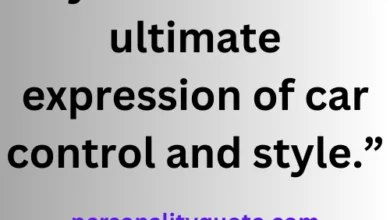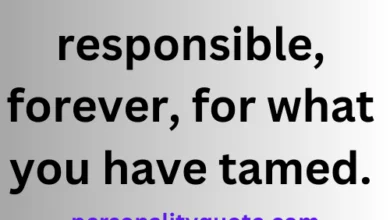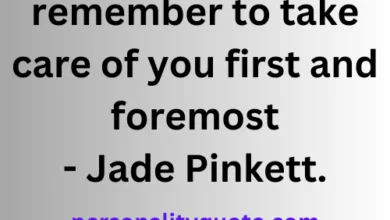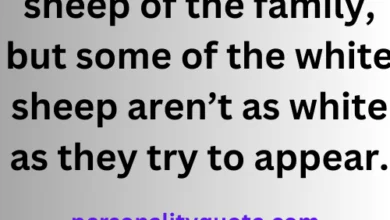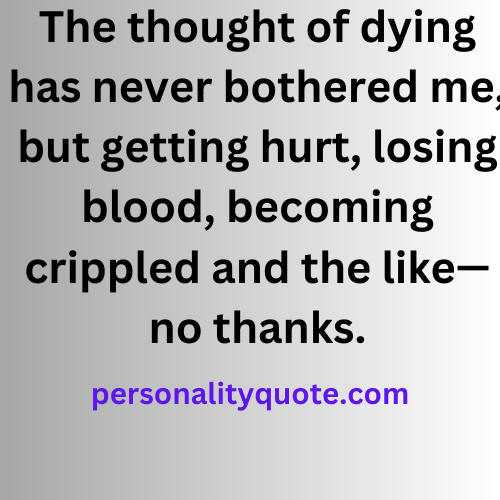
Introduction:
No Longer Human Quotes is a novel written by Osamu Dazai who is one of the most well-known and influential writers in Japan of the 20th century. His novel “No Longer Human” is a compelling and thought-provoking work of literature. This semi-autobiographical work, which was first published in 1948, has enthralled readers all over the world with its unapologetic examination of a troubled person’s struggle with the complexity of human existence.
Yozo Oba, a young man who has always felt cut off from the world around him, is the protagonist of the story. Yozo struggles with a strong sense of alienation and loneliness from a young age, never being able to truly connect with people. No Longer Human Quotes. Wearing a mysterious mask, he presents himself as a pleasant and amiable individual but secretly fears being exposed as a fraud. No Longer Human Quotes.
In the course of the book, Yozo describes his life experiences, including his turbulent youth, turbulent adolescence, and turbulent adulthood. We watch as he moves through a variety of relationships, interactions, and careers, gradually losing himself in self-loathing and despair, and becoming more and more removed from his own humanity. In the end, Yozo’s incapacity to understand and adhere to social norms and expectations drives him to the brink of insanity.
The topics covered in “No Longer Human Quotes” go beyond Yozo’s individual experience to address more general issues regarding identity, existence, and the human predicament. Dazai explores the deepest recesses of the human psyche, illuminating the vulnerability and frailty that each of us possesses. The book makes readers face painful realities about the masks we put on to hide our genuine selves and the existential fear that frequently resides beneath our lives’ surface. No Longer Human Quotes
Dazai’s prose frequently veers toward the poetic and depressing, and his writing is distinguished by its introspective and deeply introspective tone. His evocative and haunting depiction of Yozo’s inner turmoil transports readers to a place where isolation and hopelessness are the norm. Dazai asks us to consider our own role in the world and the frailty of our sense of self through his gripping storytelling. No Longer Human Quotes.
“No Longer Human Quotes” has won praise from critics for its in-depth examination of moral decay, human emotions, and the difficulties associated with mental illness. The reason for its continuous appeal is that its universal themes speak to readers of all ages and backgrounds. No Longer Human Quotes. The honest and unvarnished depiction of human suffering in the book speaks to our common experiences of vulnerability, isolation, and the search for purpose in a confusing and sometimes unfathomable world. No Longer Human Quotes.
To sum up, “No Longer Human Quotes” explores the depths of human existence and is a masterwork of Japanese literature. Osamu Dazai challenges readers to face their own anxieties, insecurities, and the facades they create to get by in life through his eerie story and reflective prose. No Longer Human Quotes. This book never fails to enthrall and stump readers, solidifying its status as a classic and indispensable piece of literature. No Longer Human Quotes.
20+No Longer Human Quotes:
-
Now I have neither happiness nor unhappiness. Everything passes. That is the one and only thing that I have thought resembled a truth in the society of human beings where I have dwelled up to now as in a burning hell. Everything passes.
-
I am convinced that human life is filled with many pure, happy, serene examples of insincerity, truly splendid of their kind-of people deceiving one another without (strangely enough) any wounds being inflicted, of people who seem unaware even that they are deceiving one another.
-
The weak fear happiness itself. They can harm themselves on cotton wool. Sometimes they are wounded even by happiness.
-
Whenever I was asked what I wanted my first impulse was to answer “Nothing.” The thought went through my mind that it didn’t make any difference, that nothing was going to make me happy
-
For someone like myself in whom the ability to trust others is so cracked and broken that I am wretchedly timid and am forever trying to read the expression on people’s faces.
-
I want to die. I want to die more than ever before. There’s no chance now of a recovery. No matter what sort of thing I do, no matter what I do, it’s sure to be a failure, just a final coating applied to my shame. That dream of going on bicycles to see a waterfall framed in summer leaves—it was not for the likes of me. All that can happen now is that one foul, humiliating sin will be piled on another, and my sufferings will become only the more acute. I want to die. I must die. Living itself is the source of sin.
-
As long as I can make them laugh, it doesn’t matter how, I’ll be alright. If I succeed in that, the human beings probably won’t mind it too much if I remain outside their lives. The one thing I must avoid is becoming offensive in their eyes: I shall be nothing, the wind, the sky.
-
Mine has been a life of much shame. I can’t even guess myself what it must be to live the life of a human being.
-
I have always shook with fright before human beings. Unable as I was to feel the least particle of confidence in my ability to speak and act like a human being, I kept my solitary agonies locked in my breast. I kept my melancholy and my agitation hidden, careful lest any trace should be left exposed. I feigned an innocent optimism; I gradually perfected myself in the role of the farcical eccentric.
-
What did he mean by “society”? The plural of human beings?.
-
He could only consider me as the living corpse of a would-be suicide, a person dead to shame, an idiot ghost.
-
All I feel are the assaults of apprehension and terror at the thought that I am the only one who is entirely unlike the rest. It is almost impossible for me to converse with other people. What should I talk about, how should I say it? – I don’t know.
-
Unhappiness. There are all kinds of unhappy people in the world. I suppose it would be no exaggeration to say that the world is composed entirely of unhappy people. But those people can fight their unhappiness with society fairly and squarly, and society for its part easily understands and sympathizes with such struggles. My unhappiness stemmed entirely from my own vices, and I had no way of fighting anybody.
-
Living itself is the source of sin.
-
-
The world, after all, was still a place of bottomless horror. It was by no means a place of childlike simplicity where everything could be settled by a simple then-and-there decision.
-
After being hurt by the world so much, they began to see the demons within humans. So without hiding it through trickery, they worked to express it.
-
Is it not true that no two human beings understand anything whatsoever about each other, that those who consider themselves bosom friends may be utterly mistaken about their fellow and, failing to realize this sad truth throughout a lifetime, weep when they read in the newspapers about his death?.
-
In my case such an expression as ‘to be fallen for’ or even ‘to be loved’ is not in the least appropriate; perhaps it describes the situation more accurately to say that I was ‘looked after.
-
I could believe in hell, but it was impossible for me to believe in the existence of heaven.
-
I shall be nothing, the wind, the sky.
